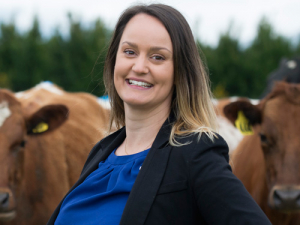Global milk production has fallen faster than expected in recent months, with the resulting rally in global dairy markets expected to be sustained into 2017, according to Rabobank.
In its latest Dairy Quarterly report, it says dairy export surpluses are expected to reduce by 3.4 million tonnes year-on-year, more than at any time since the global financial crisis.
This comes at a time when dairy demand in domestic markets has been remaining firm and when dairy farmers will struggle to grow production – resulting in farmgate prices rising in most export markets.
Rabobank dairy analyst Emma Higgins says while last week’s Global Dairy Trade event had seen the index retreat by 3%, it was still up 21% for the year to date.
Difficult conditions and low/negative farm margins have led to a decline in milk production around the globe in Q3 2016, the report says.
“At the same time, demand for dairy products, particularly butter and cheese, has remained strong in the US and has strengthened in Europe,” Higgins says. “Combined, the effect has been an even more dramatic reduction in surpluses available for export on to global dairy markets than had been expected just a quarter ago.”
Higgins says these recent market developments had renewed hopes of a sustained recovery in global dairy prices, however, headwinds still existed for further price increases.
“The world’s dairy farmers, including those in New Zealand, will struggle to lift production in response to rising prices and this is expected to lead to a sustained price recovery into 2017,” she says.
“But the price recovery is being driven by falling supply rather than by demand factors, so price increases will be limited by still weak global demand, a significant stock overhang and the strength of the US dollar.”


















